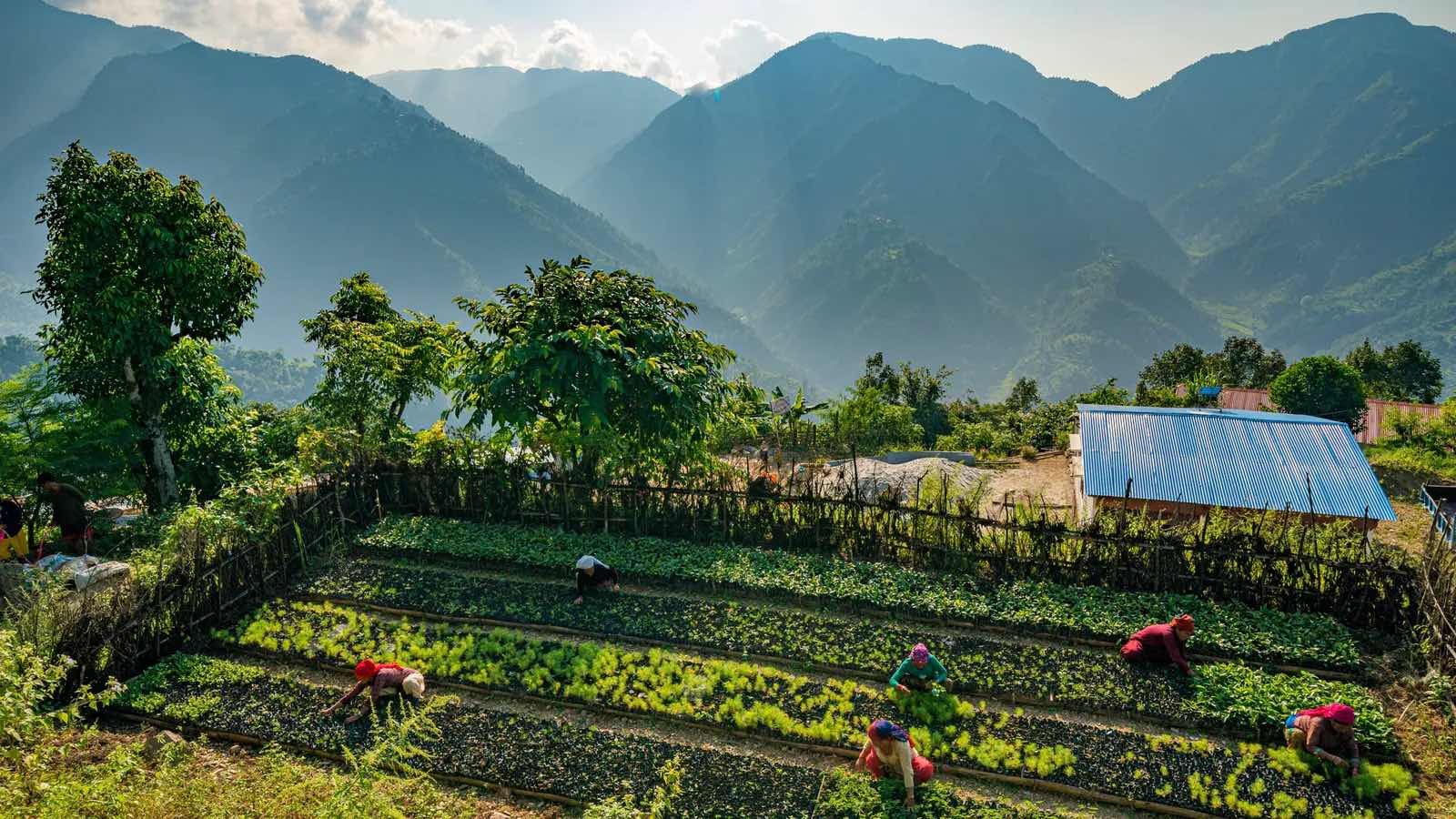Nepal: Reforesting And Protecting Endangered Animals
With less than 30% of Nepal’s forests remaining, urgent and large-scale action to reforest the country is underway. The projects we support in Nepal work across dozens of geographical sites, from the mountains of Nawalparasi to the “Heart of the Jungle” - Chitwan National Park, planting new trees to reforest the regions and protect against environmental disasters.
The rocky terrain of the Nawalparasi Mountains, located in the Western region of Nepal, is challenging for the teams reforesting, made more tricky by the fact it’s an active tectonic region that’s very unstable in deforested areas. In the Chitwan National Park in South Central Nepal, a world heritage site and the first national park in Nepal, a buffer zone is being created to protect its trees and native wildlife. The park is an impressive and hugely unique wildlife sanctuary, home to an array of different animals from the endangered One Horned Rhinoceros to the Gharial Crocodile. The “buffer zone” created by your trees will protect these species from being affected by deforestation in the surrounding areas.
Challenges like dangerous terrain are overcome and more than 12 million trees have been planted across Nepal thanks to these initiatives. Thanks to you, the projects we support and the workers working so hard to plant such a high volume of trees, ecosystems have been restored, agricultural production has restarted, and communities and habitats have been rebuilt.
A special mention to the female-led projects we are supporting. Over half of the workforce in the Nepalese projects are women and for many of them this is their first opportunity for full-time, consistent employment.
This project is:
Boosting agricultural production
Helping communities source clean water
Restoring balance to ecosystems
Restoring habitats for wildlife
Providing employment for struggling communities
Protecting endangered species from extinction




